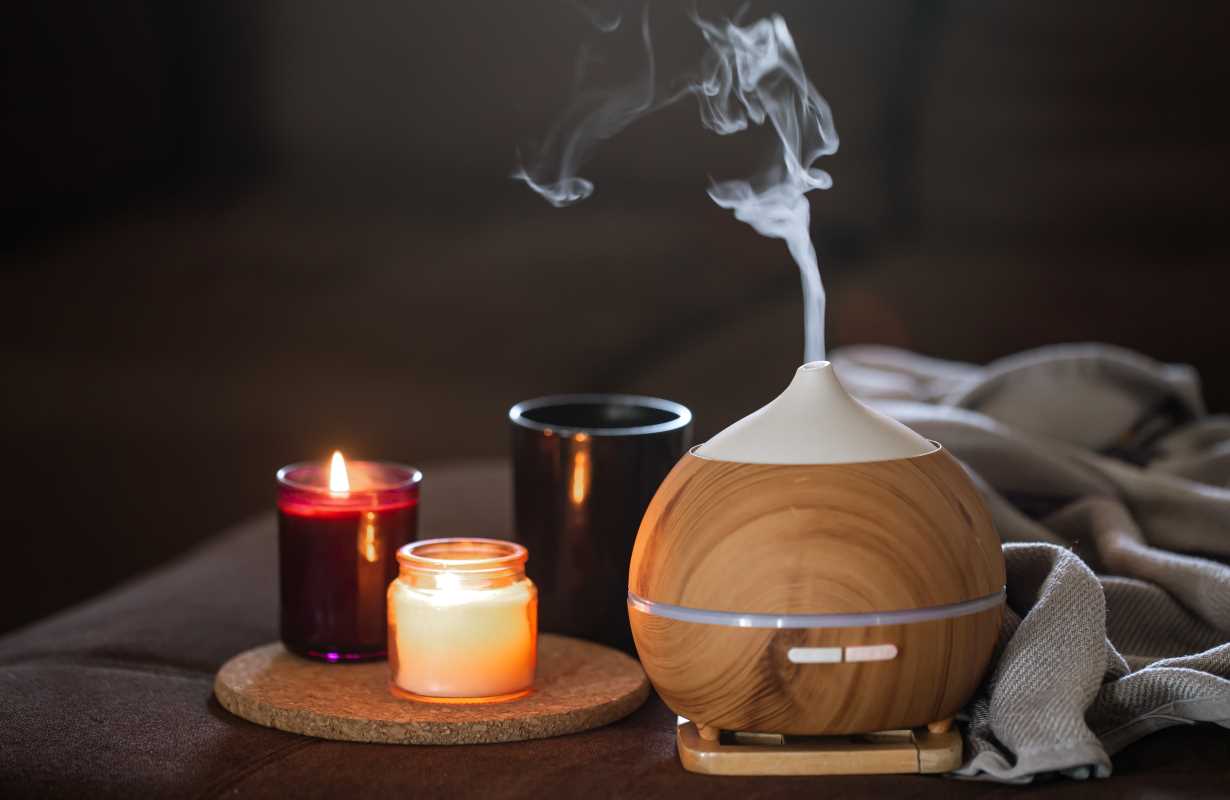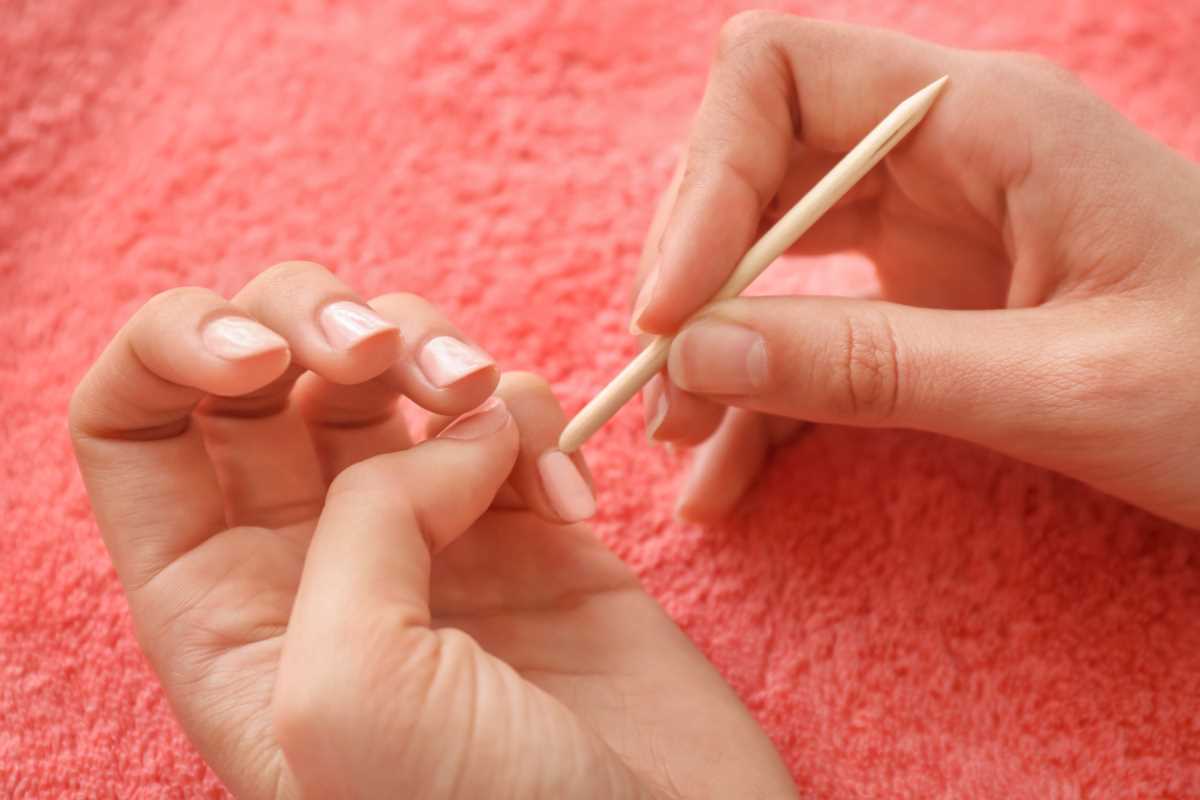Sleep struggles affect nearly 70 million Americans, according to the CDC, and chronic stress impacts up to 33% of adults regularly. While prescription sleep aids and anxiety medications offer one solution, many people are turning to natural alternatives that have supported human wellness for centuries.
Essential oils have gained significant scientific backing for their ability to promote relaxation and improve sleep quality. Research published in the Journal of Alternative and Complementary Medicine shows that aromatherapy can reduce cortisol levels by up to 23% and improve sleep efficiency scores. These concentrated plant extracts work by interacting with your limbic system – the brain region that controls emotions, memory, and sleep-wake cycles.
This guide explores five evidence-based essential oils that can transform your evening routine and help you achieve the restorative rest your body needs. You'll discover how each oil works, the science behind their effectiveness, and practical application methods that fit seamlessly into your daily life.
The Science Behind Essential Oils and Sleep
Essential oils contain volatile organic compounds that can cross the blood-brain barrier when inhaled or absorbed through the skin. These compounds influence neurotransmitter production, particularly GABA (gamma-aminobutyric acid), which promotes relaxation and sleep.
Studies from Johns Hopkins University demonstrate that specific aromatic compounds can reduce sympathetic nervous system activity – the "fight or flight" response that keeps you awake and anxious. When you inhale certain essential oils, your brain receives signals to decrease cortisol production and increase melatonin synthesis, creating ideal conditions for both stress relief and quality sleep.
The olfactory system, responsible for processing scents, connects directly to the amygdala and hippocampus. This explains why certain aromas can instantly trigger feelings of calm or transport you back to peaceful memories. Understanding this connection helps you use essential oils more effectively as part of your wellness routine.
1. Lavender: The Gold Standard for Sleep and Relaxation
Lavender (Lavandula angustifolia) stands as the most researched essential oil for sleep and anxiety relief. Multiple clinical trials confirm its effectiveness, with one study published in the International Journal of Nursing Practice showing that lavender aromatherapy improved sleep quality scores by 60% in participants with insomnia.
The oil's primary compounds – linalool and linalyl acetate – work by binding to GABA receptors in your brain, producing a natural sedative effect without the grogginess associated with pharmaceutical sleep aids. Research from Kagoshima University found that inhaling lavender for just 30 minutes significantly reduced cortisol levels and promoted parasympathetic nervous system activity.
How to use lavender:
- Diffuser method: Add 3-5 drops to your bedroom diffuser 30 minutes before sleep
- Pillow spray: Mix 10 drops with 2 ounces of water in a spray bottle for linen misting
- Topical application: Dilute 2-3 drops in a carrier oil and massage into temples or wrists
- Bath ritual: Add 5-8 drops to warm bathwater mixed with Epsom salts
Lavender works particularly well for people who struggle with racing thoughts at bedtime or wake frequently during the night. The oil's effects typically begin within 15-20 minutes of inhalation and can last for several hours.
2. Chamomile: Ancient Wisdom Meets Modern Science
Chamomile (Matricaria chamomilla) has been used as a sleep remedy for over 2,000 years, and current research validates this traditional application. The essential oil contains apigenin, a compound that binds to benzodiazepine receptors in the brain, producing mild sedative effects.
A randomized controlled trial published in BMC Complementary Medicine and Therapies found that participants who used chamomile aromatherapy experienced 25% better sleep quality and reduced anxiety symptoms compared to the control group. The oil's anti-inflammatory properties also help reduce physical tension that can interfere with sleep.
Chamomile proves especially beneficial for people whose stress manifests as digestive issues or muscle tension. The oil's antispasmodic properties help relax smooth muscle tissue, addressing both emotional and physical barriers to rest.
How to use chamomile:
- Steam inhalation: Add 3-4 drops to a bowl of hot water and inhale for 10 minutes
- Massage blend: Mix with jojoba oil for a calming full-body massage before bed
- Room spray: Combine with distilled water for a gentle bedroom mist
- Compress: Add to warm water for soothing compresses on tense areas
The oil's gentle nature makes it suitable for sensitive individuals who might find other essential oils too stimulating. Its sweet, apple-like scent appeals to most people and creates positive sleep associations over time.
3. Bergamot: The Mood-Balancing Citrus
Bergamot (Citrus bergamia) offers a unique profile among essential oils – it's energizing enough to improve mood yet calming enough to promote sleep. This paradox comes from the oil's complex chemical composition, which includes both uplifting limonene and relaxing linalyl acetate.
Research from the International Journal of Aromatherapy shows that bergamot reduces cortisol levels while simultaneously increasing positive mood markers. A 2017 study found that participants who inhaled bergamot for 15 minutes showed significant reductions in both anxiety and fatigue, creating an optimal state for natural sleep onset.
Bergamot works exceptionally well for people who feel both wired and tired – mentally exhausted but physically restless. The oil helps regulate the nervous system, bringing you to a balanced state conducive to rest.
How to use bergamot:
- Evening diffusion: Use 4-6 drops in your diffuser while winding down
- Personal inhaler: Add to a portable inhaler for on-the-go stress relief
- Chest rub: Dilute and apply to chest area for respiratory and emotional support
- Foot massage: Mix with carrier oil for a grounding bedtime foot rub
Note that bergamot is photosensitive, meaning it can increase skin sensitivity to sunlight. Use bergamot FCF (furanocoumarin-free) versions for topical applications, or limit use to evening applications on covered skin areas.
4. Ylang Ylang: Exotic Floral for Deep Relaxation
Ylang ylang (Cananga odorata) produces one of the most intensely floral essential oils, with research showing impressive effects on both psychological and physiological stress markers. Studies published in Evidence-Based Complementary and Alternative Medicine demonstrate that ylang ylang inhalation significantly reduces blood pressure, heart rate, and stress hormone levels.
The oil's rich concentration of benzyl acetate and linalool creates profound relaxation effects. Research participants in multiple studies reported feeling more calm and optimistic after ylang ylang aromatherapy sessions, with effects lasting several hours post-exposure.
Ylang ylang addresses the emotional components of sleep difficulties, particularly helpful for those whose insomnia stems from relationship stress, work pressure, or general life overwhelm. The oil's euphoric properties help shift your mindset from worry to appreciation.
How to use ylang ylang:
- Diluted application: Mix with fractionated coconut oil for pulse point application
- Bedroom diffusion: Use 2-3 drops (it's potent) mixed with complementary oils
- Bath oil: Add 3-4 drops to carrier oil before adding to bathwater
- Meditation aid: Inhale directly from bottle during mindfulness practices
Start with small amounts as ylang ylang's intense fragrance can become overwhelming. Some people prefer blending it with lighter oils like lavender or sweet orange to create a more balanced aroma profile.
5. Cedarwood: Grounding Woody Calm
Cedarwood (Cedrus atlantica) offers an earthier approach to sleep support, with research showing its ability to stimulate pineal gland activity and increase melatonin production. Studies from the University of Kagoshima found that cedarwood's primary component, cedrol, promotes parasympathetic nervous system activity more effectively than many other essential oil compounds.
The oil's grounding properties make it particularly effective for people who feel anxious, scattered, or disconnected from their physical bodies. Cedarwood helps create feelings of stability and security – emotional states that naturally support sleep onset and maintenance.
Mental health professionals often recommend cedarwood for individuals with ADHD or racing minds, as its sedative properties help quiet mental chatter without causing morning drowsiness.
How to use cedarwood:
- Sole diffusion: Use 5-7 drops alone for deep, woody relaxation
- Scalp massage: Mix with carrier oil and massage into scalp and neck
- Meditation cushion: Apply to meditation props for grounding practice
- Wrist application: Dilute and apply to wrists as a natural sleep bracelet
Cedarwood blends beautifully with lavender and frankincense for enhanced relaxation effects. Its woody scent appeals particularly to people who find floral oils too sweet or overwhelming.
Choosing High-Quality Essential Oils
Not all essential oils are created equal, and quality directly impacts both safety and effectiveness. Here's what to look for when selecting oils for sleep and stress relief:
Purity standards: Choose oils labeled as 100% pure with no synthetic additives, fillers, or carrier oils unless specifically noted. Reputable companies provide gas chromatography/mass spectrometry (GC/MS) testing results showing the oil's chemical composition.
Extraction methods: Steam distillation and cold-pressing preserve the most beneficial compounds. Avoid oils extracted using chemical solvents, which can leave harmful residues and reduce therapeutic value.
Botanical names: Quality suppliers list the complete botanical name (genus and species) on labels. This ensures you're getting the specific variety with researched benefits rather than a similar but less effective plant.
Storage and packaging: Essential oils should come in dark glass bottles to prevent light degradation. Avoid oils stored in plastic containers or clear glass, which can compromise quality over time.
Price considerations: Extremely cheap oils often indicate synthetic ingredients or adulterated products. However, the most expensive options aren't always the best – research suppliers and read third-party reviews before purchasing.
Organic certification: While not always necessary, organic oils reduce your exposure to pesticides and other agricultural chemicals that could interfere with the oils' therapeutic effects.







